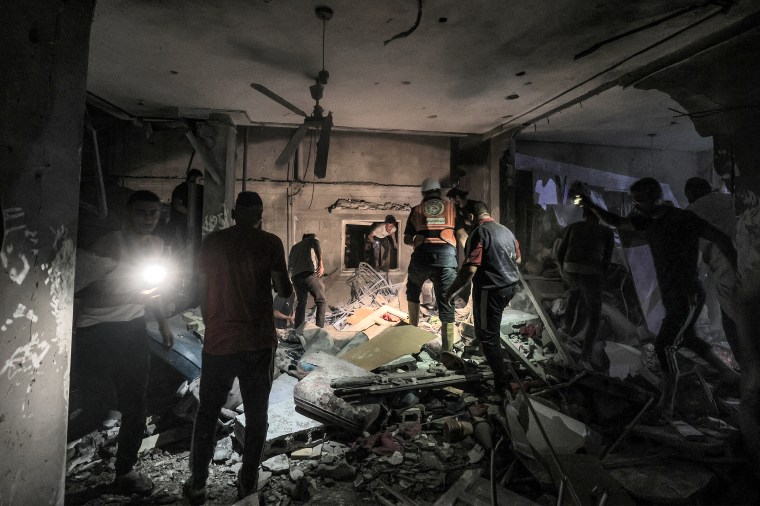How many journalists have died since the Israel-Gaza war began on October 7?
Dozens have died; see an updated list here.
How do these numbers compare to prior conflicts?
There have been more journalists killed in the first 10 weeks of the Israel-Gaza war than in any other similar period of conflict since CPJ started recording such deaths in 1992. (Read more about CPJ’s methodology here and here.)
Why are the numbers in your casualty report different from those in your annual database of journalists killed?
Our priority is to update the casualty listings as soon as a journalist’s death is confirmed by at least two sources. We then try to get more details about the circumstances of their deaths before we enter their names into our database. This means there is sometimes a time lag between the casualty report and the database. The casualty report contains the most up-to-date information.
Why are some causes of killings listed as “Israeli airstrikes” and others listed as “strikes”?
An airstrike is defined as an attack by military airplanes dropping bombs or other ordnance. In wartime, it’s not always immediately clear whether an attack was the result of an airstrike or ground-launched weapons. As the Israeli military controls the airspace over Israel-Palestinian territory, CPJ lists cause of death as an Israeli airstrike when we have determined the source of the attack based on available information — typically from at least two independent sources. If we do not have this information, we initially describe the cause of death as a strike. If additional details — such as crater analysis showing the origin of the ordnance — become available, we’ll update our database accordingly.
Could any of these deaths be considered war crimes?
Journalists are civilians and are protected by International Law. Deliberately targeting civilians constitutes a war crime. In May, the International Criminal Court announced it was applying for arrest warrants for Hamas and Israeli leaders on charges of war crimes and crimes against humanity. To date, CPJ has determined that at least three journalists were directly targeted by Israeli forces in killings, which CPJ classifies as murders, and is still investigating10 other cases that indicate possible targeting.
In January, the International Court of Justice (ICJ) ordered Israel to “take effective measures to prevent the destruction and ensure the preservation of evidence” of activities against Palestinians in Gaza that could be subject to prosecutions under the Convention on the Prevention and Punishment of the Crime of Genocide. According to human rights organizations, Israel has not complied with the order.
How has Israel responded?
Israel Defense Forces’ (IDF) officials have repeatedly told media outlets that the army does not deliberately target journalists. They also told agencies in October that Israel cannot guarantee the safety of journalists.
On May 17, 2024, the IDF’s North America desk responded to CPJ’s request for comment on journalist casualties and whether the IDF had investigated any killings or taken any steps to minimize casualties and preserve evidence in accordance with the ICJ ruling in a statement saying that the IDF followed international law and took precautions to mitigate civilian harm. “In response to Hamas’ barbaric attacks, the IDF is operating to dismantle Hamas military and administrative capabilities,” said the statement.
“The IDF takes all operationally feasible measures to mitigate harm to civilians including journalists. The IDF has never, and will never, deliberately target journalists. Given the ongoing exchanges of fire, remaining in an active combat zone has inherent risks.”
How does CPJ define a journalist?
CPJ defines journalists as people who regularly cover news or comment on public affairs through any medium to report or share fact-based information with an audience. We take up cases involving staff journalists and freelancers. We do not include journalists if there is evidence that they were acting on behalf of militant groups or serving in a military capacity at the time of their deaths.
CPJ is also documenting the deaths of media support workers in recognition of the vital role they play in news gathering. These include translators, drivers, guards, fixers, and administrative workers.
CPJ safety advisories
As we continue to monitor the war in Israel/Gaza, journalists who have questions about their safety and security can contact us emergencies@cpj.org.
For more information, read:
- Physical Safety: War Reporting
- Physical and digital safety: Civil Disorder
- Psychological Safety
- Physical and digital safety: Arrest and detention
These are available in multiple languages, including Arabic.
Editor’s note: This text has been updated in the fifth paragraph to reflect that 37 journalists and media workers were killed in connection with their work in the first month of the war.
